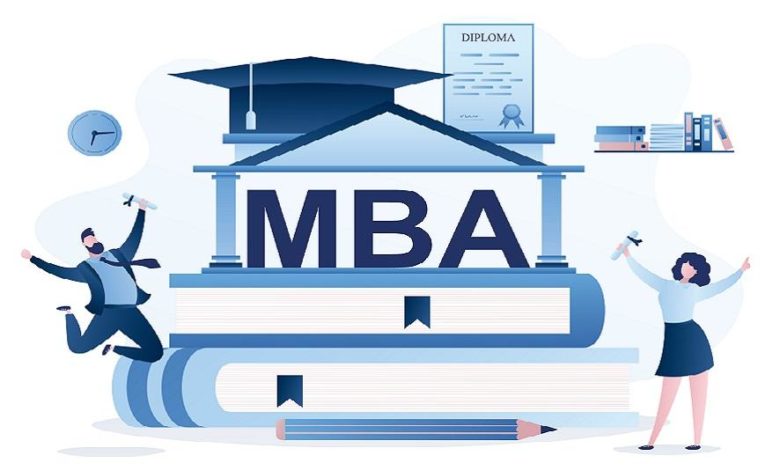
Business school is aimed to provide students with knowledge and frameworks that they can apply in the workplace. As a result, many MBA programs in the USA require applicants to have at least one year of full-time job experience before enrolling in graduate school. Also, the reason is that having some direct experience as context will help students absorb and integrate the principles they would learn in business school. Masters degree can also be more specialized, focusing on a particular field of study.
Some professional master’s degrees are the Professional Science Master’s Degree (PSM), a hands-on degree with a strong practical component that prepares students to work professionally in their chosen subject. However, Classifications and course details vary by country and institution, as they always do. Below are some of the most common instances of master’s degrees in specialized and professional fields.
Master of Business Administration (MBA)
The Master of Business Administration (MBA) program is designed to provide students with the skills and information needed to advance in business and management positions. Also, Candidates receive extensive training in all parts of the business. Allowing them to apply what they’ve learned to a variety of jobs.
Most MBA programs need at least three years of professional experience, therefore many MBA applicants are in their mid-career. Therefore, you can also adapt your MBA degree to a specific sector of interest by combining it with a specialty. Such as accounting or finance. Master of Professional Accountancy (MPAcc) and Master of Science in Information Systems (MSIS) are two master’s degrees that are related to each other.
Master of Public Administration (MPA)
The Master of Public Administration is a public policy degree that is identical to an MBA but focuses on the public sector rather than the private sector. Students might work for the government, non-governmental organizations (NGOs), not-for-profit organizations. And consultancy in fields such as the environment, international administration, and science and technology.
With a focus on policy analysis and management, the MPA blends academic and professional features. Master of Public Policy (MPP), Master of Public Affairs (MPA), Master of Urban Planning (MUP), and Master of International Affairs (MIA) are all master’s degrees in public policy.
Masters degree of Public Health (MPH)
The Master of Public Health combines academic and professional components to provide an integrative approach to public health issues. Students learn how to use public policies to monitor, diagnose, and manage community health risks. Epidemiology, global health, occupational health, and nutritional sciences are just a few of the specializations available in MPH programs. Some nations accept students with validated bachelor’s degrees, while others exclusively admit medical graduates for the MPH.
Master of Library Science
The Master of Library Science is aimed to prepare students for entry into the workplace — in this case, libraries – by providing them with both academic and professional knowledge. An MLS degree is earned after completing theoretical coursework, a practicum (supervised practical teaching), or an internship, and completing a research project or thesis at a recognized library school. In the United States and Canada, the MLS is frequently required for professional librarian roles.
Master of Social Work (MSW)
The Master of Social Work degree prepares students for jobs in social work. With a focus on enhancing the quality of life for individuals, organizations, and communities. The MSW is available as a clinical degree that allows students to work directly with clients or as a macro-practice degree. It prepares students for careers in political advocacy and community organizing.
Masters degree of Laws (LLM)
After earning a professional law degree, individuals can pursue a Master of Laws degree, which allows them to combine their understanding of the fundamental skills required to become a lawyer with expert knowledge gained through research in a specific area of law.
MA in Liberal Studies (MLS)
The Master of Arts in Liberal Studies is an interdisciplinary program that focuses on providing strong liberal arts education. MALS programs draw on courses and instructors from across the university’s postgraduate curriculum. Ensuring that candidates graduate with both depth and breadth of postgraduate expertise. Liberal arts students typically enroll in the course to challenge themselves academically. Explore ideas, and pursue knowledge rather than to pursue a certain job path.
Master of Architecture (M.Arch)
To acquire a license, students must complete practical internships, final tests, and/or a thesis or final project. Because M.Arch degrees come in a variety of shapes and sizes. You may come across different names for different sorts of programs. Students must complete a curriculum in design, building science, structural engineering, architectural history, and philosophy, and professional practice, among other areas.
Requirements for Master’s degree
Well, the entrance requirements for master’s degrees vary. A bachelor’s degree is usually need (but not necessarily) for a master’s degree, and some programs also require professional experience.
Executive Masters degree (EMBA, EMS)
Executive master’s degrees, which are there primarily for mid-career executives. Require candidates to have extensive professional experience, even more than an MBA. Master of Business Administration (EMBA) and Executive Master of Science (EMSc) programs are the most frequent.
Integrated masters degree (MEng, MMath, MSci, etc)
These are master’s degrees that are earned straight after completing an undergraduate degree program and are most typically seen in scientific and technical fields. After completing secondary school, you can enroll in a combined master’s degree program. Students may be able to skip the final year and finish with a bachelor’s degree instead. You can also get a master’s degree while studying for your undergraduate degree (especially in nations like the United States).
Read More: How tech has affected our life.




